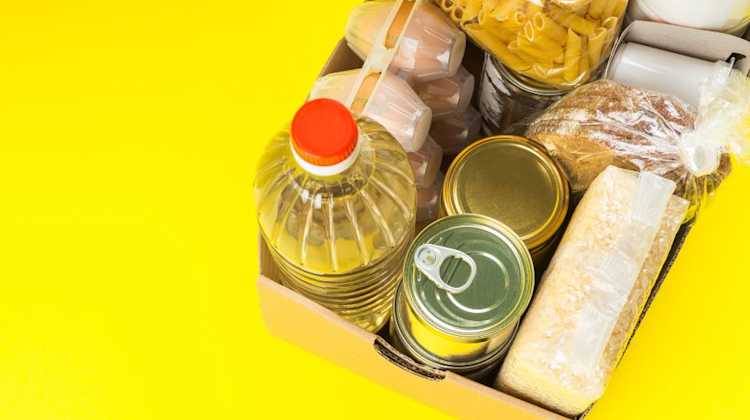Military Move Questions Answered: PPM/DITY Move and Traditional Move (Updated for 2022)
by Lizann Lightfoot - August 18th, 2022
This webinar and information below updated for 2022.
The Department of Defense recently awarded the Global Housing Goods Contract (GHC) to HomeSafe Alliance, based in Houston, TX. This contract is active through 31 August 2025. In its announcement of the new contract, the DoD said they hope this GHC contractor will make necessary changes to the military moving process.
The 2022 summer PCS season is the first big test for HomeSafe and its partners. While we are hopeful that the new contractor will represent significant improvements, some military families still prefer to move their households themselves.
Your PPM/DITY move questions answered
What is a personally procured move (PPM) or DITY move?
Unlike military contracted moves in which the government packs and ships your belongings from door to door, a personally procured move (PPM) allows military members to pack and move some or all of their household themselves.
In the past, a PPM was called a do-it-yourself or DITY move. No matter the acronym, the process is much the same. While a PPM or DITY move requires a lot of hard work and organizational skill, many military families say the financial benefits outweigh the drawbacks.
To incentivize military families to pursue a PPM, the government will pay you 100% of the cost of a contracted mover (previously, this was only 95%). If you spend less on your move than the government would pay a contractor (and you probably will), you get to keep the difference. That can add up to a substantial amount.
It's a hassle to pack and move your own household, but there are financial benefits.
What do families need before getting approved for a PPM (DITY move)?
Two years into a global pandemic, supply and labor shortages are still impacting military moves. In some cases, a PPM (formerly a DITY move) may be the best way to ensure your belongings make it to your new destination on time.
If you want to do a PPM, you need your hard orders, and you need to log into DPM to set up your move. You will need approval from the transportation office before starting your PPM. If you don't have any luck reaching them by phone, try emailing them (you can find contact information through Military OneSource). Once the transportation office approves your PPM, you can get reimbursed for the trucks, moving PODS, and anything else you may need to complete your move.
Why do families choose a PPM?
When you choose a PPM over a government procured move (GMP), the government pays you 100% of what they would pay the military contractor. In addition, you'll also get other standard travel allowances for your family. And you won't have to pay back what you don't spend, meaning you could pocket thousands of dollars by doing a move yourself.
Some families also choose a PPM because they have greater control over how belongings get packed, moved, and stored during the PCS process.
What should you evaluate before choosing a PPM?
Crunch the numbers ahead of time. If you have moved before, compare what you moved with what you have bought since then. Check out the weight allowance for your service member’s rank. Then compare rates from moving truck companies (remember to include mileage costs!) with companies like PODS or U-Pack, which will help pack and deliver for you.
Also, consider what help is available. Do you have friends and neighbors who can help you pack and load for a day or two? If so, be prepared to share some pizza and beer with them!
You should also consider whether you have friends or acquaintances to help unload at the new location.
If a family decides to hire a moving company, what should they look for to make the move successful?
If you are going to hire a company on your own, make sure they are legit. Some companies pop up with a good-looking website and a low initial fee, but these are often scams. Read reviews online, but beware that reviews can be people who work there and just want business.
You can also view trusted moving company reviews written by military families on PCSgrades. Here, you can see how different companies have handled other PCS moves.
Click the link below to access our free database of trusted reviews from military families just like yours.
Once you find several reputable moving companies, it's time to interview. Ask how they are charging you for your move. It should always be calculated by weight. Look at the contract to see when payments happen, what excess charges will be, etc.
If you’re doing a PPM, look at the company’s insurance rates. A government-procured move covers $6 per pound up to several thousand dollars. If you do a PPM, you are depending on the company’s liability clause. If something happens to the moving truck or a warehouse, know what your household goods are insured for.
Military families can choose to purchase third-party insurance, which could cover the entire replacement cost of all items if they are lost or damaged. Your contractor should discuss your insurance coverage options with you before your move.
What moving supplies do I need for a PPM/DITY move?
If you choose a PPM/DITY move, you will need boxes, packing paper, bubble wrap, tape, and other packing supplies--and lots of it! Sometimes moving companies like U-Haul give a discount for bulk purchases of these supplies. Some even buy back unused materials. Save all the receipts as you can claim packing materials on your taxes.
You can save money on packing supplies by scrolling through local Facebook pages to see when people are getting rid of moving boxes. You can also use towels, clothes, and bedsheets to wrap breakable items instead of purchasing expensive packing paper or bubble wrap.
It's also important to have a labeling system, so you know exactly what is in each box as you unpack. Always keep your uniforms with you so the service member can report to work right away.
Packing tips for your PPM
Packing seems overwhelming, but take it one small task at a time. Set a goal of packing a few boxes each day. Start with pictures and knick-knacks because they can be packed weeks in advance. That’s a good way to make a dent quickly!
Remember to pack last whatever you are going to need first. Necessities like toilet paper, cleaning supplies, and the all-important coffee maker should go in that first day box. Mattresses can go last, so you can throw them on the floor and get good sleep while you are unpacking.
What up-front costs will be covered for a PPM? How can we offset the costs?
Government travel cards can be used for some PCS expenses (always double check with your branch’s finance office first). Dislocation allowance (DLA) can be paid as a partial advance before your move to help offset initial costs.
To offset the labor shortages, the government reimbursement rate is now 100% based on your weight and your service member’s rank. This reimbursement should cover all expenses, but items like packing materials won’t be included in that reimbursement. However, you can claim some of those costs on your taxes.
Pros and cons of a partial PPM vs a full PPM?
Almost everyone ends up doing some type of partial PPM or DITY move.
If you drive, you get paid some distance for your car and whatever you packed into it. Your weight will not be as significant as the full PPM. A partial PPM/DITY move gives you better control over your most important possessions.
Even if the bulk of your household goods go with a government mover, doing a partial PPM allows you to keep important documents, keepsakes, and essentials with you at all times. Firearms, sentimental items, cleaning supplies, kid and pet essentials--these are all things you will have in your vehicle and can claim on the partial PPM.
With a partial PPM, you will weigh your vehicle empty, load it up, then go weigh it full. While you won't make as much money as you would with a full PPM move, you will still make some money.
A full PPM, that is, actually packing a moving truck and driving it yourself, results in a much more substantial reimbursement. If you drive your own vehicles and a U-Haul across the country, check if your cars can be towed by the U-Haul. If so, you will get the mileage and weight reimbursement for both the vehicles and the trailer.
A full personally procured move can be time-consuming and exhausting, but the payout is significantly higher than with a government procured move.
Is the PPM reimbursement taxed?
Yes, the money you receive from a personally procured move is considered taxable income. The government doesn't reimburse dollar for dollar, so you can still use your receipts as a tax write-off. The PPM reimbursement is based on mileage and weight, so it changes depending on how much each person is reimbursed. The rank and number of dependents are also factored in for each family.
Previously, the government only reimbursed service members at 95% what it would cost to hire a government contractor. In 2021, that reimbursement increased to 100%.
If you tow a boat on a trailer, can you count that boat toward the weight?
The weight of the boat may not be included, but you can fill the boat with household goods and use that to count towards the weight. The DTR (Defense Travel Regulation) discusses regulations for boats and motorcycles.
Be careful if you have items not secured in a boat or other open vehicle. If you stop at restaurants or hotels, you risk these items getting stolen or compromised.
What do you wish you knew before doing a PPM?
You learn more with each move, and there are always better ways to stay organized and cut corners. You want to think carefully about keeping cleaning supplies and mattresses in an easily accessible place, and label everything very carefully.
Cleaning the place you move out of can be very time-consuming. Military housing often has a long cleaning checklist, so plan at least a day for that during the moving process or hire a cleaning company to take care of it for you.
Be organized and use lots of checklists for yourself. Need a PCS checklist? Download yours for free by clicking here and scrolling about halfway down the page.
What policies should military families know before a PPM/DITY move?
Have your hard orders and the approval from the transportation office before your PPM. If you haven’t done the counseling and approval, you will not get reimbursed.
Know that weight tickets (empty and full) are essential for getting reimbursed. It has to be a certified ticket from a weigh station, which you can usually find at truck stops and large gas stations.
Crunch the numbers for your own family to make sure a personally procured move is worthwhile. You can get an estimate through Military OneSource or your local transportation office.
If you use a U-Pack Truck, make sure you get the weight tickets before and after. It’s more expensive than U-Haul, but factor in all the additional costs and hassle of driving a moving truck yourself across the country.
Factor in all the logistics of gas stations and hotels if you are planning to drive yourself.








